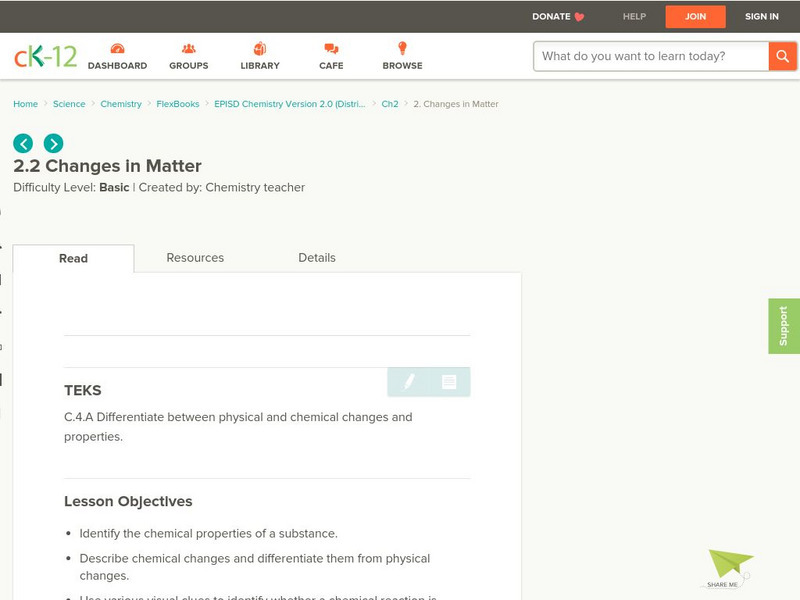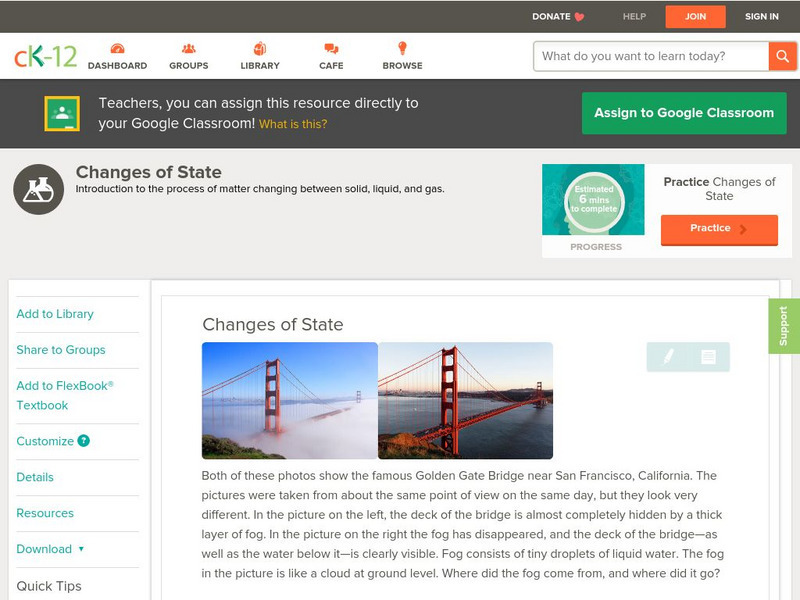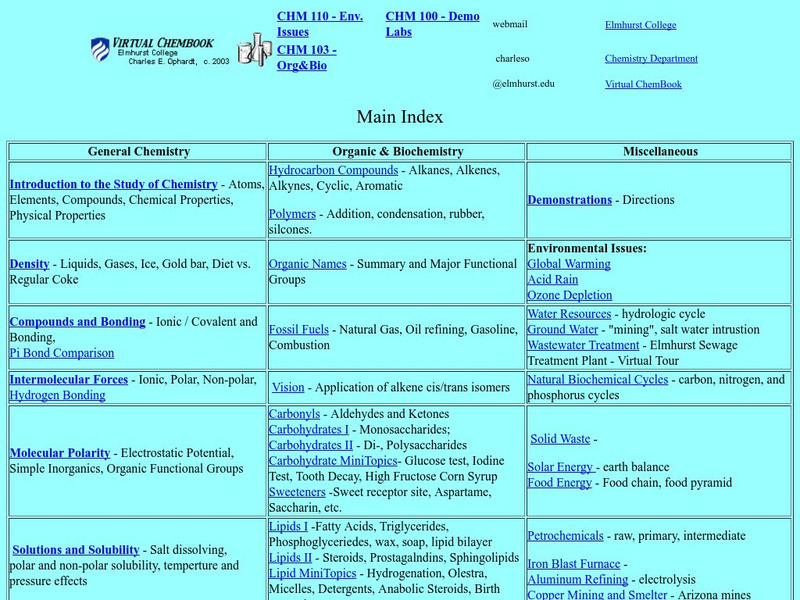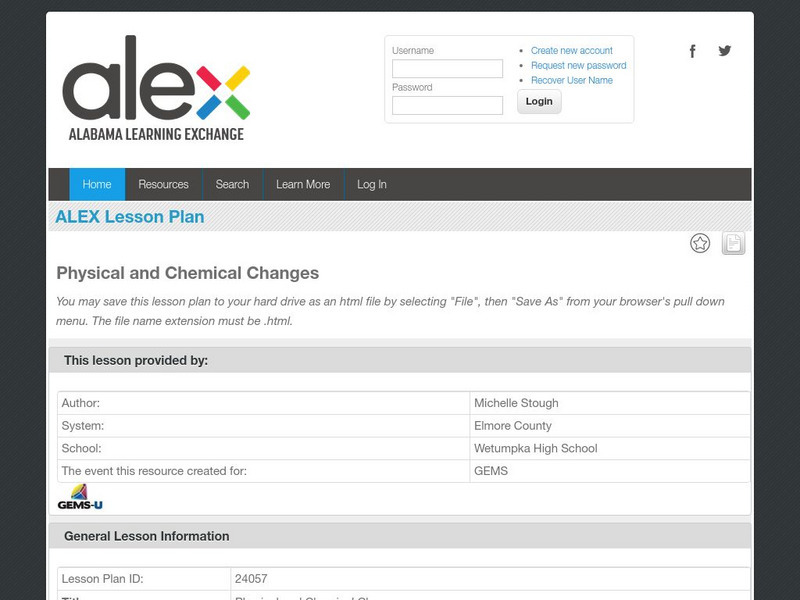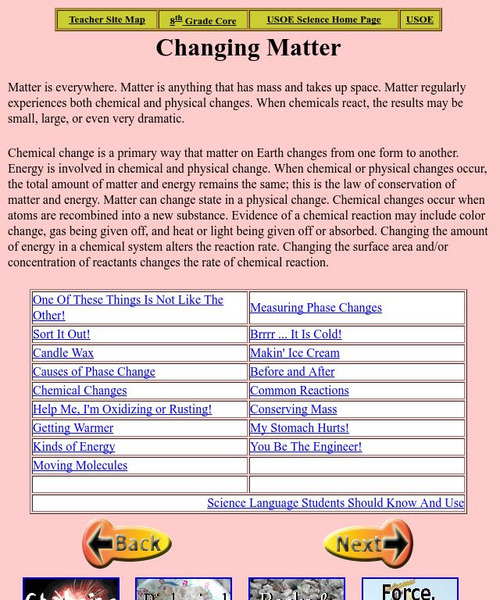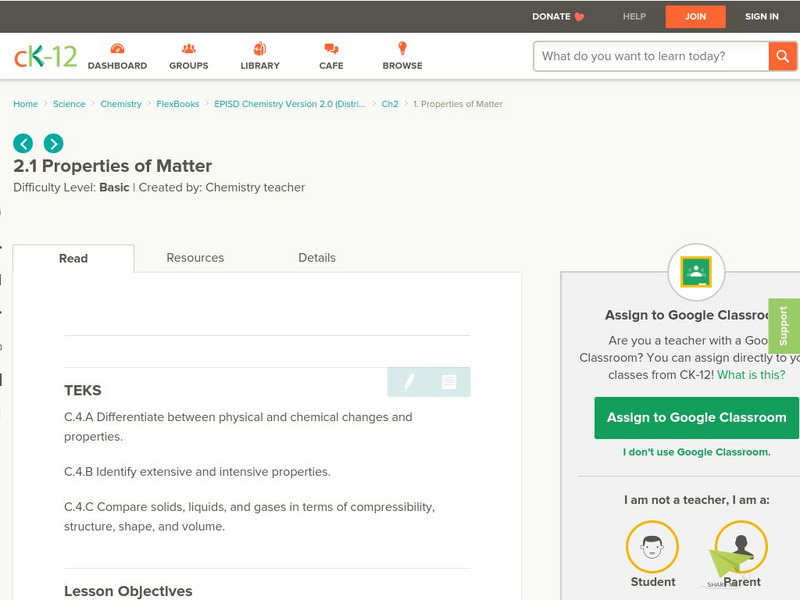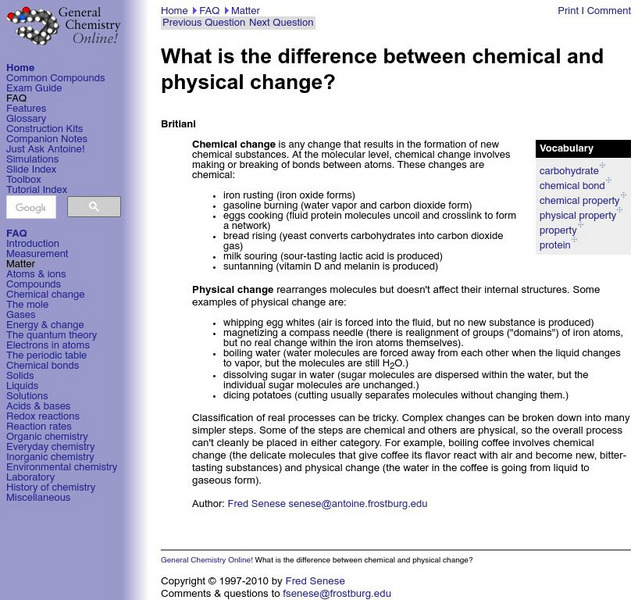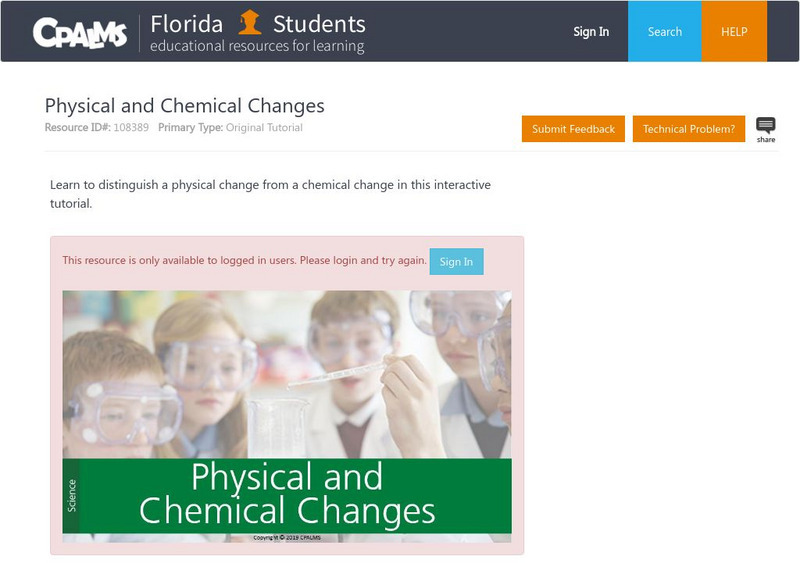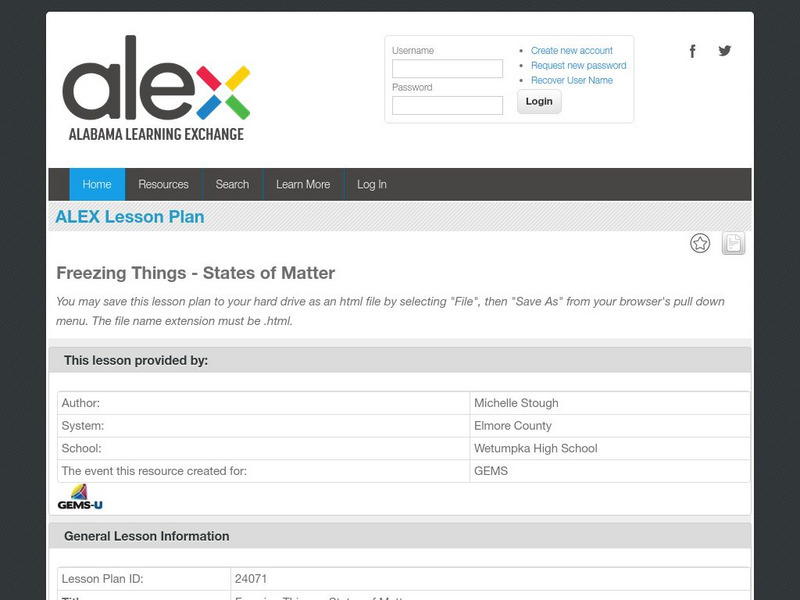PBS
Pbs Learning Media: Mystery Mud: Exploring Changes in States of Matter
Join a group of middle-school students on a visit to a laboratory at the Massachusetts Institute of Technology, where they experiment with "mystery mud" and learn about the relationships between magnetism, particle motion, and changes in...
CK-12 Foundation
Ck 12: Changes in Matter
[Free Registration/Login may be required to access all resource tools.] In the following online tutorial students identify the chemical properties of a substance and describe chemical changes and differentiate them from physical changes....
CK-12 Foundation
Ck 12: Change of State
[Free Registration/Login may be required to access all resource tools.] Students explore how heat of fusion and heat of vaporization energy are used to create a phase change, and how a phase change can be used to do work.
CK-12 Foundation
Ck 12: Physical Science: Changes of State
[Free Registration/Login may be required to access all resource tools.] Definition of a change of state and the physical processes that cause it.
Other
Elmhurst College: Virtual Chembook: What Are Physical Properties and Changes?
Brief descriptions of physical properties, physical changes, and the process of sublimation. The three states of matter, melting point, and boiling point are described. There is one link on the page, which leads to an explanation of...
Alabama Learning Exchange
Alex: Name That Change!
This lesson teaches students to distinguish between physical and chemical changes. Students will view an interactive slideshow presentation and then conduct experiments to discern physical and chemical changes.
Alabama Learning Exchange
Alex: Physical and Chemical Changes
The teacher will conduct the whoosh bottle demonstration to engage students. The class will then begin discussion of endothermic and exothermic physical and chemical changes. The students will then conduct the Science in Motion lab...
Utah State Office of Education
Utah Science: Changing Matter
Matter changes both physically and chemically on a fairly regular basis. Through these activities students will challenge their understanding of the changes that may take place with different types of matter.
American Chemical Society
Middle School Chemistry: Changing State: Freezing
Learners investigate how low temperature causes water vapor to condense into a liquid and then freeze to form a solid.
CK-12 Foundation
Ck 12: Properties of Matter
[Free Registration/Login may be required to access all resource tools.] In this online tutorial, students will begin to understand a substance according to its physical properties. Learn to distinguish between extensive and intensive...
eSchool Today
E School Today: What Is Matter
Learn about matter, its three states, changes of state, how matter behaves, and physical and chemical changes in matter.
Texas Education Agency
Texas Gateway: Temperature, Kinetic Theory, and the Gas Laws: Phase Changes
By the end of this section, you will be able to interpret a phase diagram; state Dalton's law; identify and describe the triple point of a gas from its phase diagram; and describe the state of equilibrium between a liquid and a gas, a...
Frostburg State University
General Chemistry Online: Physical and Chemical Changes
Resource provides information about the difference between physical and chemical changes. Includes a definition and examples of each.
CPALMS
Florida State University Cpalms: Florida Students: Physical and Chemical Changes
Explore the differences between chemical and physical changes, including some examples at the atomic level.
Alabama Learning Exchange
Alex: Freezing Things: States of Matter
The class will go back over the Power Point presentation on chemical and physical properties. The teacher will then conduct numerous liquid nitrogen demos. This lesson plan is used early in the Chemistry course. The students love it....
Utah STEM Foundation
Utah Stem Action Center: Changes in Matter
The goal of this activity is to develop and use a model to describe that matter is made of particles on a scale that is too small to be seen. You will be making observations of changes supported by a particle model of matter.



